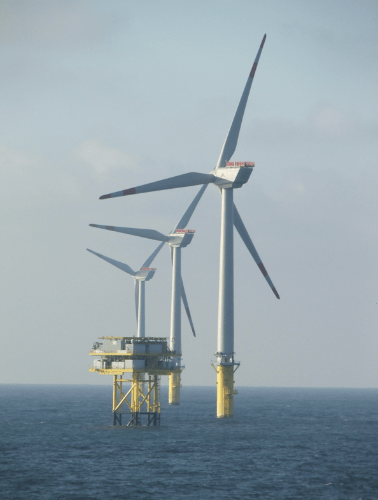Recent Environmental Assembly Bills in California
In the throes of environmental crises and amidst the urgent call for sustainability, California stands as a beacon of progressive change. Through a flurry of assembly bills, the Golden State is not merely paying lip service to eco-consciousness; it’s enacting tangible, impactful change. But here’s the kicker: it’s not just about passing bills; it’s about ensuring they see the light of day through the power of voting. In a world where every ballot counts, California’s journey towards a greener future underscores the critical role of civic participation in shaping our collective environmental destiny.

Offshore wind energy holds immense potential as a clean and renewable energy source, and Assembly Bill No. 3 (AB-3), also known as the California Offshore Wind Advancement Act, aims to harness this potential for the state’s energy future. AB-3 builds upon existing legislation by requiring the State Energy Resources Conservation and Development Commission to develop a comprehensive second-phase plan and strategy for seaport readiness in consultation with relevant state agencies and commissions. This plan extends the scope of offshore wind energy development beyond the generation phase, emphasizing the importance of port infrastructure and manufacturing capabilities for offshore wind turbine assembly. By December 31, 2026, the commission is mandated to submit a report to the Governor and Legislature outlining recommendations for implementing a port development strategy, ensuring careful consideration of factors such as site feasibility, environmental impacts, and workforce opportunities. Additionally, AB-3 directs the commission to conduct a study on the feasibility of achieving in-state assembly and manufacturing targets for offshore wind energy projects, aiming for 50% and 65% in-state assembly and manufacturing, respectively, by December 31, 2027. This study will assess current manufacturing capabilities, identify supply chain gaps, and explore potential economic impacts and job growth opportunities associated with increased domestic production. By fostering the growth of a robust offshore wind energy sector and promoting local manufacturing and job creation, AB-3 stands as a crucial step towards advancing California’s renewable energy goals while contributing to a sustainable and resilient future. However, challenges may arise in securing necessary funding and navigating regulatory processes to facilitate the proposed developments, warranting careful consideration and proactive measures to address potential obstacles. As California endeavors to forge a sustainable future, AB-3 emerges as a beacon of progress in the realm of renewable energy legislation, signaling a concerted effort to leverage offshore wind resources for clean energy generation and economic growth.
In a parallel endeavor to bolster environmental protection measures within the oil and gas industry, Assembly Bill No. 1167 (AB-1167) takes center stage as a proactive response to the evolving energy landscape and mounting environmental concerns. AB-1167, also known as the Oil and Gas: Acquisition: Bonding Requirements Act, addresses the regulatory framework surrounding the acquisition of oil and gas wells or production facilities in California. Against the backdrop of an evolving energy landscape and environmental concerns, AB-1167 aims to enhance environmental protection measures within the oil and gas industry. The bill introduces a significant change by mandating that individuals acquiring the right to operate a well or production facility must file an individual indemnity bond or a blanket indemnity bond with the State Oil and Gas Supervisor, covering the full costs of plugging and abandonment, decommissioning, and site restoration. This requirement seeks to ensure that adequate financial resources are available to address potential environmental liabilities associated with oil and gas operations. By imposing stricter bonding requirements, AB-1167 intends to minimize the risk of orphaned wells and mitigate the potential burden on public funds for remediation efforts. However, the implementation of these bonding requirements may pose challenges for operators, particularly in assessing the appropriate bond amounts and securing financial assurance. Additionally, the bill empowers the supervisor to approve alternative means of financial assurance, offering flexibility while maintaining regulatory oversight. Overall, AB-1167 represents a proactive approach towards strengthening environmental safeguards within the oil and gas industry, although the effectiveness of its provisions in ensuring industry accountability and mitigating environmental risks will require ongoing evaluation and monitoring. While AB-1167 focuses on enhancing environmental protections in the oil and gas sector, AB-881 tackles the urgent challenge of plastic waste management in California.
Assembly Bill No. 881 (AB-881) represents a pivotal step in addressing the global plastic waste crisis by targeting the export of plastic waste from California. Against the backdrop of escalating environmental concerns, AB-881 aims to enhance plastic waste management within the state. By categorizing the export of plastic waste as disposal unless specific criteria are met, the bill seeks to curb the practice of exporting plastic waste and promote domestic recycling. Notably, AB-881 prohibits the export of plastic waste mixtures unless destined for separate recycling of specific materials and compliant with destination countries’ laws and treaties. Moreover, the bill mandates comprehensive reporting requirements, ensuring transparency and accountability in waste management practices. By shifting the focus towards domestic recycling infrastructure, AB-881 aims to mitigate environmental degradation while fostering sustainable waste management practices within California. However, the effectiveness of AB-881 in promoting domestic recycling infrastructure will require ongoing evaluation and collaboration between stakeholders to ensure its successful implementation and address the challenges posed by the plastic waste crisis.
AB-3, AB-1167, and AB-881 collectively represent a multi-faceted approach toward sustainability in California. By fostering renewable energy development, enhancing environmental safeguards, and promoting circular economy principles, these bills work synergistically toward building a more sustainable and resilient future for the state. However, their successful implementation will necessitate ongoing collaboration, proactive measures, and adaptive strategies to overcome challenges and achieve long-term sustainability goals.
Read the assembly bill texts below:


